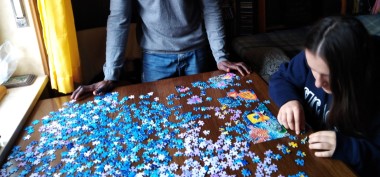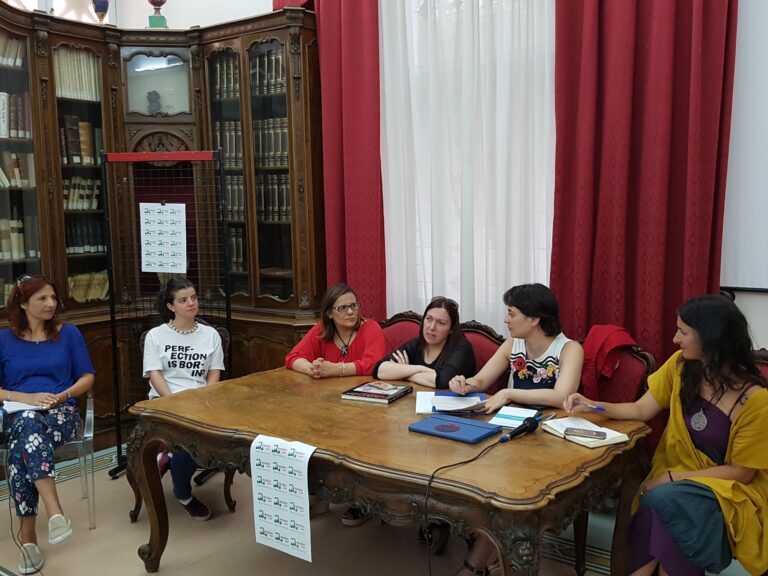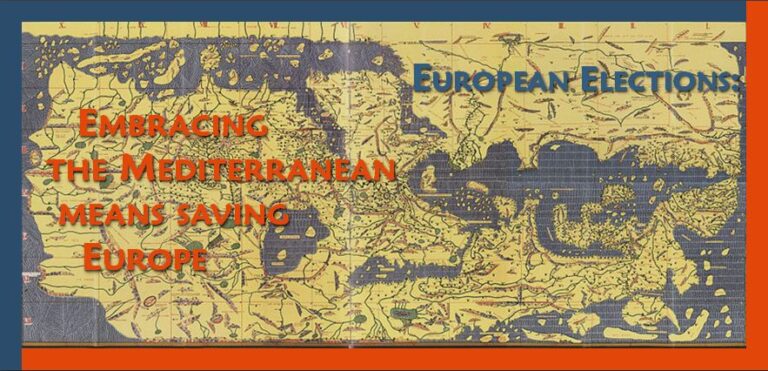These excerpts are part of an ongoing social media chronicle of the challenges and opportunities the pandemic has created for an Italian family, Lisa Ariemma’s family, with strong links to Canada, living in a small village in the Alps. It is being perceived by some readers, who are a living in countries a few steps behind Italy in the crisis, as a crystal ball for what is to come. And by many Italians, as a retrospective look into their new way of sensing what matters in daily life.
Day 6 of the lock down – Sunday, March 15th, 2020 – A Message from Italy
On Friday morning – Day 4 of the lock down – I realized how immobile and lethargic I’d been, we’d all been, wandering aimlessly like ghosts. That initial slight depression seems to have passed and I felt the desire to be proactive at least within the confines of my private space. Italy woke up with the sting of European Central Bank President Christine Lagarde’s: “It is not our job to reduce spreads”[1], which sent the Italian stock market in a tailspin resulting in a 17 per cent loss in one day. We might want to reconsider the wisdom of placing so much weight on an economy ruling system that can cause such dramatic financial loss due to a phrase uttered.
In moments like these, you realize who your friends and allies are. And while EU countries have been reticent to pass on masks and the like to Italy, an Air China flight arrived between Thursday and Friday and delivered nine doctors and tens of thousands of masks, gloves and equipment as part of an initiative led by Turin’s New Generation Italo-Chinese Association. The 2,300 boxes had the two nations’ flags on them and the phrase: “Siamo con voi. Forza Italia” [We are with you. Go Italy.].
Meanwhile, initiatives across the country are working to keep people calm and united. The Italia Chiamò event on Friday involved artists, entertainers, musicians, and others who carried out an eighteen-hour on-line marathon to raise money for the Protezione Civile [civil defence], which is handling the logistics of the crisis. On Instagram, musicians like Jovanotti and entertainer Fiorello bantered back and forth as Jovanotti strummed his guitar and sang. Hashtags like #iorestoacasa [I’m staying home] and #distantimauniti [distant but united] circulate across social and traditional media. Communities like Caselle, just outside of Turin, have created apps which provide bedtime stories for children and fitness classes for adults. Examples like these have sprung up across the peninsula.
Over lunch, as we discussed the situation, one of my daughters said: “Our sacrifice is to stay home. It’s not to go to war and fight.” Later, when we considered having her friend, who was having difficulty with English homework, come over and stay in the garden, we thought a moment – our family and hers – and decided no. If everyone makes little exceptions like these, there will be thousands of such exceptions and, in any case, it is our collective duty, out of civic respect, to resist such temptations. That evening at six p.m. we joined thousands of Italians and played music on our balcony: “Bella Ciao”, a partisan song featuring a flute, a recorder, a violin, and a tambourine.
Meanwhile, the ripples of the pebble dropped into the Chinese pool continue to spread outward as schools closed in France, Germany, and Canada and borders closed in Australia. Yesterday, we walked up to our orchard where there is also some land to plant our vegetable garden. We called our neighbour to come out and chatted with her. I could see the panic in her eyes talking about this extraordinary situation. How many others like her must be seeing so many half empty glasses. I am trying to focus on the positive in this terrible situation; for me and my girls. Afterwards, we started a 1,000-piece puzzle which is driving us crazy … too many shades of blue!!
This morning we woke up to the news that numbers are still increasing and that we are nowhere near the peak yet. The fact – as yet unconfirmed – that Cuba and Venezuela will follow China’s lead and send doctors to help regions such as Lombardy, whose healthcare system is near collapse, is causing endless irony on social networks given the clearly right-wing leanings of the presidents of three of the four regions most affected.
Around the breakfast table, we discussed Boris Johnson’s “herd immunity” plan and the difference a preposition makes in the statistics related to mortality rates. Germany reports a very low mortality rate – nine was the latest figure with over 4,600 cases. As my husband explained, Italy is reporting those who’ve died of Covid-19 and those with Covid-19 (who therefore had pre-existing pathologies), whereas Germany is only reporting those dying of Covid-19. These are details that change the landscape dramatically. After breakfasting my daughters went back up to the orchard to pick yellow primroses and violets, which I will dry for tea. My girls and I are talking a lot. Just now, one of them told me how much she will appreciate being able to go out for a walk with her friends, stroll with an ice cream.
On Friday, a phrase circulated on Facebook and Whatsapp that was attributed to the donation from China, which may or may not be true. However, the message is valid regardless: “We are waves from the same sea, leaves from the same tree, flowers from the same garden.” I am convinced that this situation will teach us many lessons and that staying at home will open our minds. Let us hope the lessons learned will be remembered when it’s all over.
Day 69 of the lock down – Sunday, May 17th, 2020 – A Message from Italy
As of tomorrow, we will be free to travel within our region without having to legally justify ourselves. We will also be permitted to see our friends, though having shared meals and forming groups is still prohibited. The changes did, however, already begin at the beginning of the month when we were finally able to visit the grandparents wearing our colourful double-face masks made by a friend who is a sartorial artist. As we stood in the hallway at the entrance to their apartment chatting and recounting the last few weeks, nonna and nonno repeatedly remarked on how much my younger daughter had grown taller. Afterwards, we went for a drive around the main town just two kilometers down the mountain from ours. My girls hadn’t been in a car, nor had I driven one, in weeks and the novelty of it all was striking. How quickly we forget and then appreciate what was once normal.
We have loosened up the rules on visiting with friends and the girls have started seeing them outside in the town square or at the local playing field, always maintaining their distances. My youngest won’t even accept snacks from friends in her wanders. We have laid down the rules for co-existing with the virus: distance, masks and constant hand washing or hand sanitizing – gel is now easy to find in stores. We have a container with small bottles of sanitizer in the bathroom and a box in the hallway with everyone’s masks, including spare disposable ones that can be used twice. I keep a larger gel dispenser in my car.
Remembering to bring a mask has been challenging and I usually leave one hanging from my rearview mirror. Masks have, in fact, replaced pine-shaped air fresheners, fuzzy dice and lucky charms like Naples’ iconic long, red peppers. My first outing to the gardening store meant lining up with cars outside the gates and then standing in line outside of the greenhouse. We’ve decided we want to have chickens again, so I enquired about full grown ones and the group of baby poultry in a nearby small coop. We’ve decided to get two females of a different colour that are slightly larger than day-old chicks: one for each daughter. They will be raised in a large cage on our balcony until they are big enough to join the adult chickens that we will purchase when our coop is once again fox and beech marten-proof.
The last few weeks have been a tug-of-war between economic forces and health and safety concerns as the national government and the regions have debated over a cohesive, national phase two or a differentiated one that depends on the Covid-19 condition of each region. In the end the situation is hybrid as parameters have been set by the government for reporting the status of contagions, the number of tests performed and hospital bed availability; every new liberty granted will depend on the nature of the virus feedback collected by Italy’s twenty regions and reported to Rome. Closer to home, the Upper Mountain Community in our valley – which we are a part of – will have blanket Covid serological tests conducted on two-thirds of its 15,000-person population from the end of May into early June.
After lengthy arm-wrestling, stores and restaurants will open tomorrow, as well as hair and beauty salons, as long as owners work within the rules set out by the government, which have frustratingly emerged in bits and pieces over the last few days. Restaurants went from having to leave two metres of space between tables – economic suicide for small, family-run businesses – to one metre. Paper menus are not permitted, and cash payments are discouraged. Masks must be worn when customers are not at their table and all meals served are on a reservation basis with the names of customers collected in a registry that must be kept for two weeks in order to be able to track who people have been in contact with should they catch the virus. Use of sidewalks is being permitted to allow more space for customers. Stores have number and distance restrictions as well as sanitizing regulations and wellness businesses must work on an appointment basis, maintaining health and safety measures.
Here in Italy, the number of cases is the lowest it has been since the beginning of March as is the daily death rate. We are holding our collective breaths. My youngest said the other day: “We can’t all go out and show ourselves in groups or Conte will close everything down again.” How our perspectives have shifted. Yesterday, as I watched a British series on Netflix in which people were meeting in a café, it struck me that such a simple ritual is abnormal now. In fact, across Europe, citizens and their leaders are experimenting with how to co-exist with the virus and the European Union is working toward reinstating the Schengen Agreement, which ensures freedom of movement and no borders among all EU-member states. Unilateral decisions have been made by several countries such as Germany, which has opened its borders with Denmark, Austria and Switzerland. Indeed, while the situation in Brazil and Russia seems to be worsening, and the US appears to be plateauing, Europe is slowly coming out of its lock down state.
Numerous studies have proven the link between poor air quality and the spread of the virus. This would explain its explosion in Lombardy, Italy’s most industrial and hardest hit region. In an effort to maintain improved air quality in Italian cities, and promote alternatives to public transit, which can no longer support pre-virus passenger numbers, the government is offering funds for the purchase of bicycles and electric scooters in urban areas. At the same time, cities are increasing 30-kilometre-per-hour stretches of road to accommodate slower vehicles and enhancing pedestrian areas and bicycle paths. On a broader scale, environmentally-friendly renovations, such as installing solar panels, will cost homeowners virtually nothing.
Italian opposition leaders ironize about government subsidies on electric scooters when businesses are failing, nonetheless, this is an opportunity to transform temporary improvements in air and water quality – realized at enormous social and human cost – into a long-term sustainable vision. It is true that some leaders, such as Hungary’s Viktor Orbán or Israel’s Benjamin Netanyahu, have used the virus as an excuse to augment executive powers or bend judicial rules, but it is up to world leaders and the citizens that they represent to decide whether or not to use the pandemic as an excuse or justification to ignore climate change goals or to effectively promote and further them.
Last Saturday, our neighbours were having a barbecue and offered us a glass of prosecco through the slats of their fence. We stood chatting on the road as they passed us appetizers to accompany our drinks, until we all decided to break the rules and congregate in their backyard, maintaining social distances. They opened a fresh bottle that was a gift from their friend Bruno and had been meant to be drunk together with him. Sadly, at age 62, he was a victim of the virus and we shared a special toast in his name. We had actually never spent so much time together; indeed, a benefit of this strange confinement has been getting to know some of our neighbours better. As we were leaving, we heard the clip clop of “Lady”, a gorgeous, sleek, and shiny brown horse travelling down our street.
Over the month of May, two major Italian news items highlighted the antagonistic nature of this country. On May 9th, after 18 months as a prisoner in Kenya and then Somalia, 24-year-old Silvia Romano was liberated and returned to Italy as Aisha, a converted Muslim. The collective joy over her release was sadly tainted by a flood of hate messages on social media, which have led to hate crime investigations[2].
Later this month, the poignant tears shed by Teresa Bellanova, Italy’s Minister of Agriculture and Forestry, as she announced an amnesty for thousands of unregistered migrant workers in the agriculture and homecare fields[3], were a source of ridicule and irony among Italy’s right wing parties who oppose any measures perceived to demonstrate a preference for non-Italian citizens. Indeed, both cases brutally encapsulate the schizophrenic nature of the Italian ethos and an ever-present “us versus them” mentality.
A few days ago, my older daughter pulled out our portable record player and started sifting through the classic LP’s and 45’s in my collection. I had to re-teach her how to use it and as we sang along to the iconic songs from the movie version of “Grease”, she asked me to lift the arm and move it over to another song afraid of scratching the record by doing it herself; this daughter who is so technologically savvy. In fact, both girls were mesmerized and stupefied by that spinning vinyl that could produce music.
Technology has certainly salvaged important cultural events that would normally have been held live such as the Eurovision music competition. For the first time in its 65-year history, artists did not compete on a common stage – this year it was to be held in Rotterdam – but simply performed last night in live-streaming from across Europe. Italy’s San Remo contest winner Diodato sang his hit “Fai Rumore” [Make Noise] alone in Verona’s Roman amphitheatre.
Another example is Turin’s Salone del Libro, one of Europe’s largest book fairs, which took place over four days under the moniker of “Salto Extra” [Extra Jump]. It consisted of a series of online meetings, presentations and special guests and was referred to as a “marathon of culture”. A live version is being scheduled for this coming autumn, virus permitting.
On Friday, I realized how these past two and a half months have changed my physical reactions when my husband, a friend and I went searching for porcini mushrooms in the forest of a neighbouring village. On our way back to the car empty-handed, we stopped briefly to say hello to a friend I hadn’t seen since March 4th. As we chatted in a loosely square formation, her on the doorstep and us in three separate points on the street, we saw a young man approaching and instinctively all separated further to allow him the social distance to walk by.
Indeed, we are being asked to be good citizens in a moment when our obligations are taking precedence over most of our rights. We are being asked to trust our leaders and our fellow citizens; to trust that the decisions being made on our behalf are truly in our best interest and that our collective behavior will allow us to co-exist with the virus and then have it eventually leave us. How much tomorrow will change as a result of the today we are living remains to be seen. All of us, however, are exploding with the excitement of finally being able to move more freely, see our friends and begin to consider the possibilities of how we might spend our summer.
Earlier this week, we had some heavy rain that left stains of red sand on the plastic tablecloth that protects a wooden table outside. That red sand had travelled from an African desert to my backyard in the Italian Alps. That sand, the quality of the air we breathe, the water we drink and the Covid-19 virus that has spread across the globe, clearly illustrate how interconnected we truly are.
In a recent interview in Turin’s La Stampa newspaper[4], Albert Camus’ daughter Catherine, who was a guest at the Salone del Libro, stated that today her father would probably have substituted the word “Equality” in France’s post-revolutionary motto “Liberté, Egalité, Fraternité” with the word “Solidarity”. In these challenging times, moments in which the lack of equality among peoples has become glaringly obvious, recognition of common interests and mutual support on a global scale may perhaps be the sentiment that is needed, the notion that is key.
Discover Lisa’s bio here.
[1] Reuters, “Italy furious at ECB’s Lagarde ‘not here to close spreads’ comment”, 13 March 2020.
[2] New York Times, “Italian Hostage’s Release Erupts Into Clashes Over Islam and Ransom”, 14 May 2020.
[3] Al Jazeera, “Thousands of undocumented migrants to get Italian work permits”, 14 May 2020.
[4] La Stampa, 14 May 2020, Interview by Giulia Zonca, p. 31.




